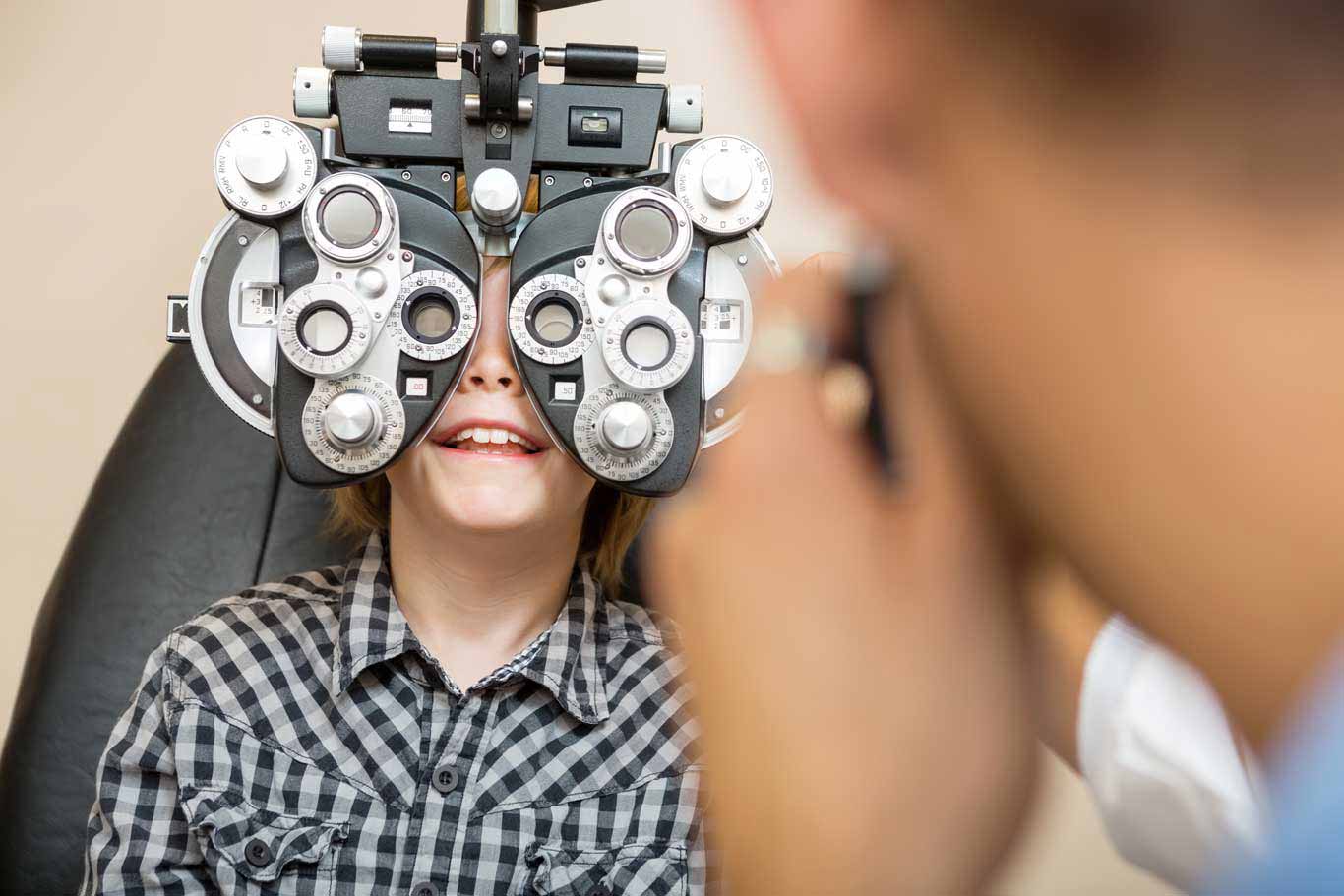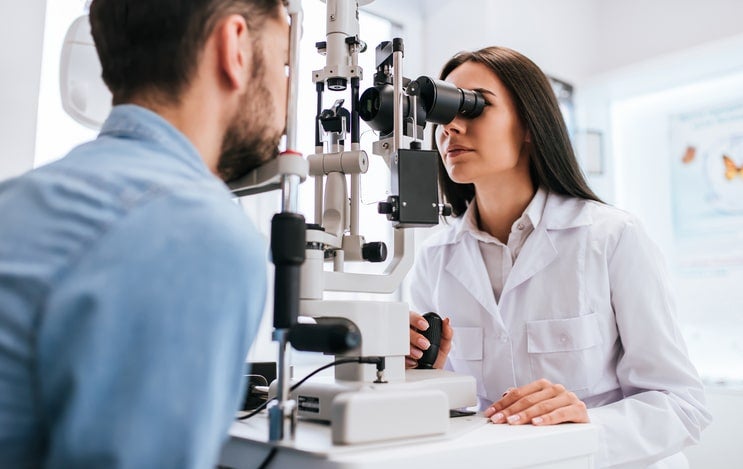The Significance of Routine Eye Tests: Insights From a Skilled Eye Physician
Normal eye tests function as a crucial component of health care that expands past mere vision adjustment. A knowledgeable eye physician can give understandings into just how these analyses not just spot usual eye conditions however also reveal underlying health concerns that may otherwise go undetected. The quiet progression of diseases such as glaucoma and macular deterioration highlights the need of very early detection. Recognizing the regularity and significance of these analyses can ultimately influence one's lasting health and wellness trajectory, raising the inquiry of exactly how typically people ought to prioritize their eye health and wellness in the context of general health.
Advantages of Routine Eye Tests
Although lots of people may overlook the relevance of regular eye tests, these analyses play an important function in preserving overall health and health. Normal eye exams serve not only to evaluate vision but likewise to discover very early indicators of systemic health and wellness problems, consisting of diabetic issues and hypertension. By identifying these conditions at their inception, clients can obtain prompt interventions, substantially improving long-lasting end results.
In addition, eye examinations can help in keeping an eye on existing health problems, ensuring that any kind of changes in vision or eye health are promptly addressed (optometrist). The evaluations permit tailored recommendations concerning glasses, way of living adjustments, and protective measures versus potential eye stress or damages
Beyond physical wellness, the benefits of routine eye tests prolong to improving quality of life. Inevitably, focusing on eye exams promotes a proactive approach to health and wellness administration, empowering individuals to take fee of their health.
Common Eye Conditions Detected
Regular eye examinations are crucial in identifying a range of common eye conditions that can significantly affect vision and general health. Among the most common conditions recognized throughout these assessments are refractive mistakes, consisting of myopia (nearsightedness), hyperopia (farsightedness), and astigmatism. These conditions usually manifest as obscured vision and can be quickly remedied with prescription glasses or call lenses.
In addition, cataracts, which cause clouding of the lens, are frequently diagnosed in older adults. This problem can bring about decreased vision and needs medical treatment for resolution. An additional typical problem is glaucoma, a team of eye diseases that harm the optic nerve, often connected to boosted intraocular pressure. Early discovery is critical as it can protect against permanent vision loss.
Age-related macular degeneration (AMD) is another significant condition that impacts central vision, especially in people over 50. Ultimately, diabetic retinopathy, an issue of diabetes, can cause extreme vision disability if not checked routinely. Via detailed eye tests, these problems can be recognized early, permitting prompt management and treatment to maintain vision and improve lifestyle.
Significance of Very Early Discovery
Early discovery of eye conditions plays a vital role in maintaining vision and avoiding significant health and wellness difficulties. Lots of eye diseases, such as glaucoma, diabetic retinopathy, and age-related macular degeneration, can advance calmly without recognizable signs and symptoms in their onset. By the time signs show Resources up, permanent damages might have occurred, go right here causing permanent vision loss.
Normal eye examinations facilitate early diagnosis, permitting prompt intervention and therapy. For circumstances, treating elevated intraocular stress can protect against the onset of glaucoma, while taking care of blood glucose levels can dramatically decrease the risk of diabetic person retinopathy. Additionally, problems like cataracts can be properly managed with medical intervention when recognized early.

Exactly How Usually Should You Go To?
Figuring out the regularity of eye examinations is essential for preserving optimal eye wellness and vision. The general suggestion for grownups is to have a comprehensive eye test each to two years, depending upon private threat elements and age. For individuals matured 18 to 60, an examination every two years is generally sufficient if no vision troubles exist. Nevertheless, those over 60 ought to think about annual tests, as the threat of age-related conditions enhances considerably.
People with details risk variables, such as a family members background of eye disease, diabetic issues, or existing vision problems, may call for more frequent assessments. Children must have their initial eye examination at six months old, complied with by additional examinations at age three and before entering institution. Normal examinations during youth are important as vision can change swiftly throughout developing years.
Ultimately, the frequency of visits ought to be customized to every person's conditions, including way of living, job-related risks, and any pre-existing eye conditions. Consulting with an eye care professional can offer individualized recommendations, making sure that your eye health is frequently monitored and kept.
Tips for Your Eye Test
Preparing for your eye exam can enhance the effectiveness of the see and ensure a comprehensive examination of your eye health and wellness. To optimize your time with the eye medical professional, it is important to collect pertinent information prior to your consultation. Beginning by assembling a listing of any kind of medications you are presently taking, consisting of over the counter medications and supplements, as these can influence eye health.
Additionally, document any type of signs and symptoms you have actually experienced, such as obscured vision, discomfort, read or headaches. This information will certainly aid your eye physician in identifying prospective problems. If you use glasses or call lenses, bring them along, even if you do not wear them consistently. This will certainly aid the physician examine any changes in your vision.
It is also advantageous to have a household background of eye problems handy, as genetic elements can add to your eye health. Finally, think about scheduling your examination for a while when you are less rushed, permitting you to ask concerns and review your worries completely. By preparing sufficiently, you ensure that your eye exam is effective and that your optometrist has all the essential information to offer the most effective treatment possible.

Conclusion
Routine eye exams play a vital function in preserving both vision and total health and wellness. They facilitate the early discovery of various eye problems and systemic concerns, permitting prompt intervention. The suggestions for frequency highlight the value of aggressive care. Applying straightforward preparatory pointers can improve the assessment experience. Ultimately, focusing on thorough eye examinations adds dramatically to the conservation of vision and the renovation of quality of life, underscoring the requirement of regular eye care in precautionary health care methods.
Routine eye tests are crucial in detecting a variety of common eye problems that can considerably influence vision and overall health.Determining the regularity of eye exams is crucial for preserving ideal eye wellness and vision.Preparing for your eye exam can improve the efficiency of the go to and make sure an extensive analysis of your eye health and wellness (optometrist). By preparing properly, you make certain that your eye examination is productive and that your eye physician has all the needed info to give the ideal care possible
Eventually, prioritizing thorough eye evaluations adds considerably to the conservation of vision and the improvement of quality of life, underlining the necessity of routine eye treatment in preventive healthcare strategies.